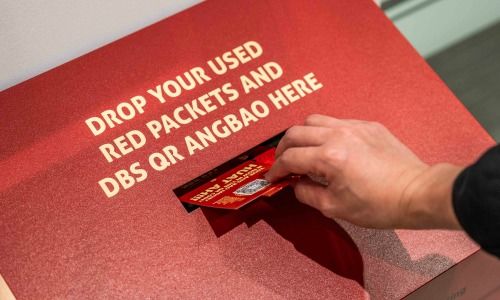Digital Alternatives to Red Packets Gain Traction
DBS launched the world’s first loadable QR red packets on 25 January to strong public interest. Since then, customers appear to have taken to the novel solution very quickly.
There has been growing interest and comfort in using digital alternatives for Chinese New Year – DBS Bank recorded more than $1.3 million being loaded onto its QR Ang Baos since its launch in a pilot program on 25 January, the bank said in a press release on Thursday.
Additionally, the bank's PayLah!’s eAng Baos, first launched in 2015, has steadily grown in popularity, the bank said, citing sixfold growth in the number of eAng Baos sent in 2018 compared to the year before. During Chinese New Year this year, the number of eAng Baos sent daily was double that of 2018, and the bank recorded more than 40,000 new PayLah! eAng Bao users.
Different User Groups
According to DBS, the majority of users of its QR red packets were in the 30–49 years old age group, while the majority of eAng Bao users were in the 20–29 years old age group. Additionally, 64 percent of QR red packets had $8 and above, compared to 50 percent for eAng Baos. They both saw the highest number of transactions on 5 February, day 1 of Chinese New Year.
«For any innovation to succeed, it is key to find a balance between technology and preserving core traditional values, and to continue iterating based on feedback. With our DBS QR Ang Baos, eAng Baos and traditional red packets, we are glad to provide different ways to send blessings for the new year,» Jeremy Soo, DBS managing director and head of its Consumer Banking Group (Singapore), said.
Digital Disruption Hits Tradition
Virtual red packets, which promise convenience and additional security while keeping the Chinese tradition of gifting money to send wishes of good fortune, are the most popular way to gift money in China, though physical red packets are still more popular in Hong Kong, Taiwan, Malaysia and Singapore, according to the South China Morning Post.
Chinese social networking app WeChat pioneered virtual red packets in 2014, allowing its users to send credits of between 0.10 and 100 RMB (US$0.015–14.79) to their contacts. It recorded 75 million transactions between 5 million users on the first day that year, with holding company Tencent gaining in the mobile payments space as users linked their bank accounts to their profiles. Other companies have since followed suit in introducing their own virtual red packets.



























